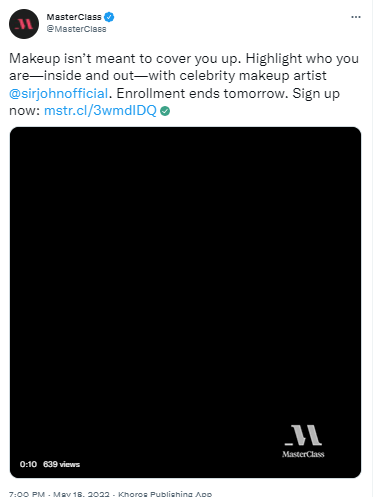If you’re a brand owner or marketer there’s a high chance you’re already using social media to grow your business. If you’re not… It’s time to fix that; in 2022, almost 92% of marketers are using social media for their businesses.
According to the latest statistics, there are 4.65 billion social media users worldwide in 2022—a 4.8 percent increase from a year ago. Each user spends an average of 2.5 hours per day on different networks.
84% of these users are between the ages of 18-29 which, according to The Bureau of Labor Statistics, is the highest spending age group.
This means that businesses now have the opportunity to reach billions of active, engaged individuals who just love to buy stuff.
But it’s not enough to simply be on social media and post for the sake of posting. In order to grow organically, stay ahead of the competition and convert your target audience into paying customers you need a rock-solid strategy in place.
In this article we’ll define the winning roadmap to finding your target audience, growing your following and building a community of engaged, loyal customers.
But first, some inspiration to get those creative juices flowing.
Masterclass; a lesson in brand-building storytelling
Online courses are booming and these days people are looking for the cheapest possible experience. With giants like Skillshare and Udemy offering low monthly subscriptions and programs for as low as $14.99, Masterclass is taking a completely different route by providing premium education. And it’s working.
They’ve attracted teaching talent like Stephen Curry, Gordon Ramsay and Serena Williams and in the first four months they sold 30,000 course sign-up.
So how did they do it? In addition to a rock-solid SEO strategy and methodical content marketing Masterclass has truly mastered the art of how to grow your business on social media.
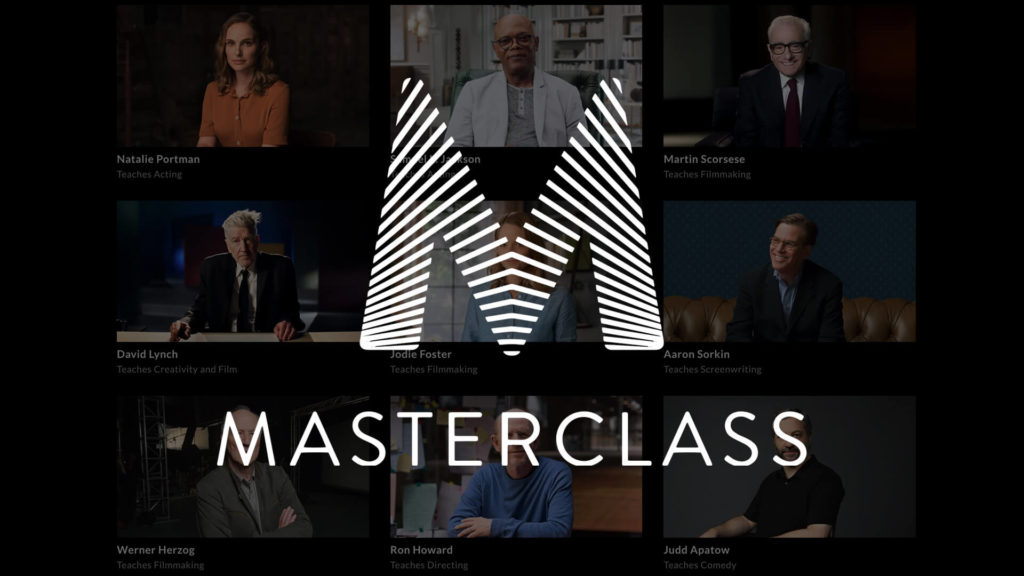
Contextual storytelling
With dozens of high profile instructors and hundreds of courses to offer, Masterclass had to find a way to reach and convert the right people. How did they do it? Well besides some remarketing wizardry, Masterclass exploits relevant trends and seasonal events to promote a given course. During Spring they released a gardening course starring LA fashion designer Ron Finley.

During Mother’s Day they collaborated with Forbes urging people to “Give Mom the gift of a year’s worth of picking up new skills” and they target cooking fanatics with Gordon Ramsay ads. Masterclass knows how to be topically relevant.
Producing Stunning Video Content
Marketers who use video grow revenue 49% faster than non-video users.
MasterClass invests in extremely high quality, relevant and actionable videos that aren’t only visually enthralling but are also exceptionally scripted. Masterclass utilizes video more than any other content medium and for good reason, it works.
Almost every post is an interview-style walkthrough of the coach’s course content. Even their Twitter feed is full of mainly short video clips and CTA’s linking back to the main courses.
Personality
With so many high profile celebrities being featured by the platform, it would only make sense for Masterclass to let the personalities of these celebrities take center stage.
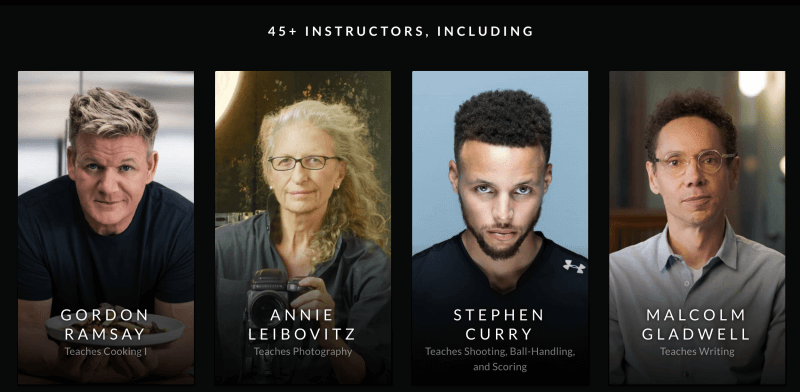
Utilizing influencers and big-name stars also encourages organic word of mouth marketing and creates an aura of authority around their platform.
22 tips on how to use social media to grow your business
1.Identify your audience
This is one of the most important steps to take. Identifying your audience provides a clear focus of whom your business should serve and what they need.
If you have a keyword strategy in place then take advantage of popular search terms your customers are using to find groups and communities on Facebook, Reddit, Quora and Discord. Find popular questions that they want answered, resources that they’re looking for and possible competitors that they reference. Figure out their overall sentiment regarding the niche you’re operating in to map out content and buyer journeys.
Once you pinpoint who your target audience is it’s time to find out where they’re most active. For example, older generations are spending more time on Facebook than ever before while more than half of Instagram users are under the age of 34. Twitter also caters to a younger demographic with 38% of Twitter users being between the ages of 18-29 and TikTok has become the biggest social network for Gen Z.
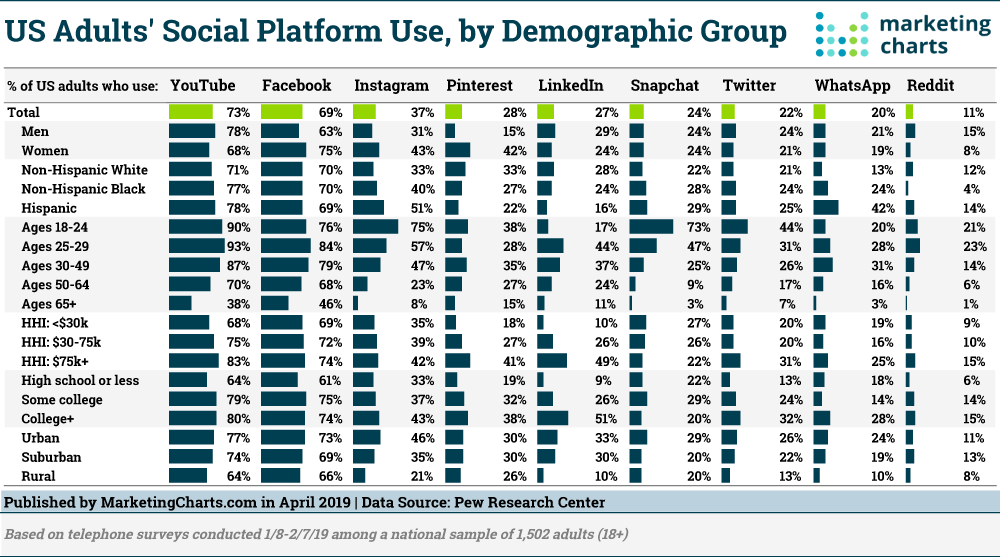
If you’re really struggling with fleshing out your target audience, look at your competitors. What brand voice are they using? What content do they produce? What social media platforms do they consistently use? Analyze their engagement rates, comments and hashtags as well to get some insightful inspiration.
2.Plan in advance
Whether you’re starting from the ground up or want to identify any gaps in your current social media strategy, having a defined direction and plan in place will make sure you’re making the most out of your social media presence.
- Find your brand’s voice, tone and messaging
Different people will relate to different messaging so it’s important to understand your audience and speak their language. Once you figure out how you want your brand to be portrayed you can move on to creating content
- Plan out your content
There are five main types of content most businesses use for social media: videos, images, re-shares, written content and quotes. And though video content tends to outperform every other medium when it comes to engagement, it’s important to strike a balance and use a ratio of posts that your followers can get accustomed to.
3. Create the right content for different social media platforms
Every social network hosts unique demographics of users. That is definitely something to keep in mind when thinking about how to use social media to grow your business.
Here are a few examples of what content should be used for different social media platforms
- Instagram is a visual social network whose algorithm prefers video content and rewards engagement. Businesses have also seen great success with using Reels for sharing relevant tips, going behind the scenes at their business and featuring their employees.
- LinkedIn is used primarily by whitecollar professionals. Uploading infographics, videos, industry news and research, blogs and in-depth how-to’s work is a surefire way to cement your brand as a thought leader.
- Facebook is the largest social media network with over 2.3 million monthly active users and while it’s tough to decipher exactly what content works best on the network, businesses generally use Facebook to share User- generated content, memes, giveaways and polls.
- TikTok is host to fast-paced, short video-form content (although they do allow for videos up to 10 minutes in length). Most social media marketers overlook TikTok due to the platform’s young user base.
But that’s a mistake. The purchasing power of TikTok’s audience is just as powerful as any other platform. The key is in TikTok marekting strategy – nailing your messaging by being personal and optimizing your content for the platform.
Do that and TikTok can work for any business across any niche. Including SaaS.
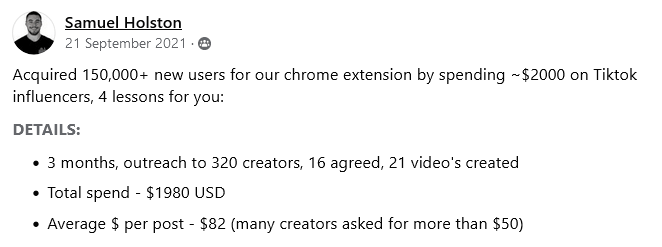
4. Produce out of this world content
Content is king. But consistently churning out scroll-stopping content that resonates with your target audience isn’t easy.
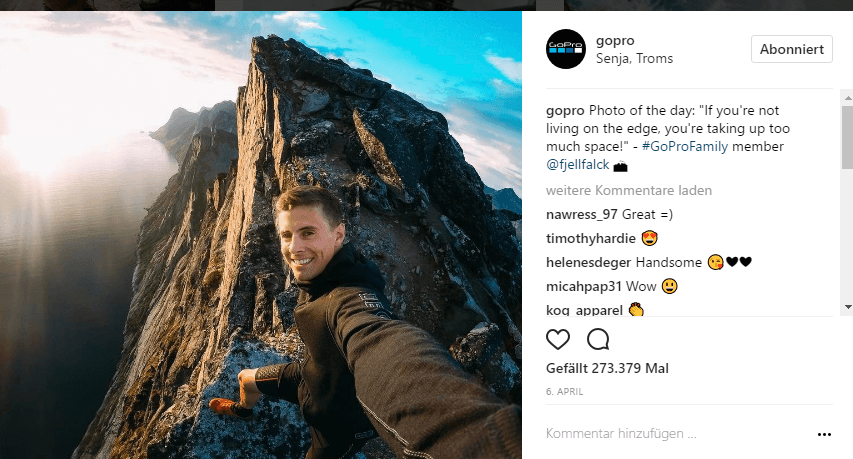
To create attractive videos, animations and images without a big budget or a large team you need some tools.
For standout images – Canva, Adobe Spark, BeFunky, Fotor
For fun animations – Biteable, Boomerang by Instagram, Powtoon
For stunning videos – Animaker, iMovie, Lumen5, Soapbox
To increase your content’s longevity be sure to take full advantage of repurposing. Content repurposing is the process of splicing and reusing all elements of existing content to piece together something new. For example if you’re recording a podcast, be sure to take a video of the recording so you can use short snippets for Facebook, the full clip for a Youtube video and outtakes for Instagram stories.
5. Post consistently
Consistency is arguably just as important as quality. Even if you create great content, unless you can churn out enough of it to stay relevant to your followers and to algorithms that content will go to waste.
But constant publishing can be a double-edged sword. While most social media platforms encourage new accounts to post at least once per day, many marketers overlook the content fatigue phenomenon. Content fatigue is when your followers become numb to seeing your posts. This can result in unfollows and a decline in engagement, which are bad signals for your account.
We won’t get too far into the weeds with this one, but here’s a handy chart by HubSpot that shows how the number of Facebook posts their customers published every month affected the number of indexed clicks on each post.
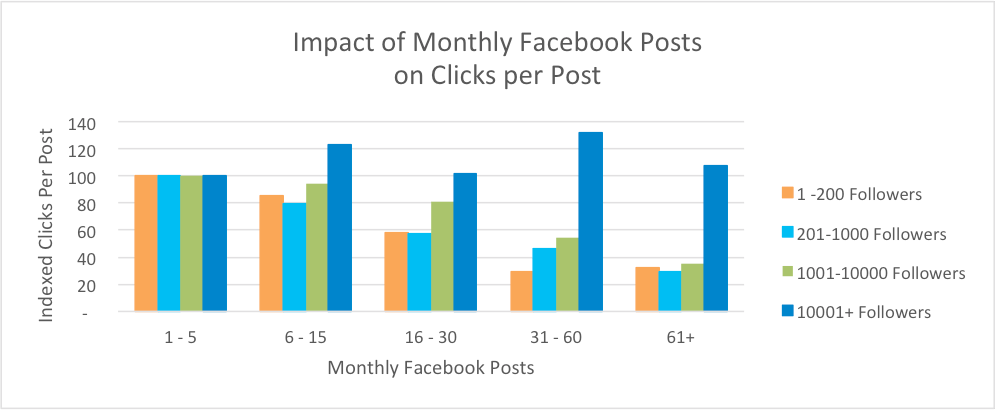
The more social networks you try to master the harder it becomes to manage everything manually, especially when you’re trying to cater to different time zones. Lucky for you, we have the perfect solution. Kontentino’s powerful scheduling tools lets you create, plan and queue content to all major social media platforms with the click of a button.
We also enable seamless team collaboration but more on that later. Once you have scheduling squared away you’ll want to allot time to creating content, create a posting schedule and batch your content to avoid unnecessary hiccups along the way. Check out this article for specific
6. Engage your followers
Tweaking your content for audience participation gives your followers a reason to actually care about your brand. The more engagement you garner also indicates to algorithms that your page is relevant and should be shown to more people (for example Youtubers asking their viewers for likes). Remember to like and reply to comments, reply to DM’s and repost Instagram Story mentions. To take it a step further, send a personalized thank you message to people who leave positive feedback on your page. When creating content be sure to sprinkle in fun polls and questions.
7.Take advantage of paid ads
From Facebook to Pinterest, advertising is the life blood of all social media networks. And thanks to the massive growth these platforms have seen in recent years in terms of users, content creators and businesses, social media has become a pay to play game. For instance, organic reach on Instagram has dropped by 47% over the past two years. In 2022, if 100,000 people follow your page, your posts will only get in front of 5,200 of them. So if you want to increase your brand presence and stay ahead of the competition, having a social media advertising strategy in your pocket is a necessity.
Here are a few things to keep in mind when using paid ads:
- Know the key strategies for structuring your campaign on every platform you plan to advertise on.
- Use A/B testing to optimize your ads by trying different copy, creatives, audiences and CTA’s. Constant testing is necessary to find the winners, scale sustainably and decrease your CPA/CPM
- Design your ads for mobile. As of 2021, mobile commerce makes up 72.9% of total ecommerce sales. If your ads aren’t natively tailored for mobile, they simply won’t work.
- Invest in exceptional video content.
8. Add CTA’s (call to action)
At the end of the day, you want to leverage your social presence to bring in new business, which is why it’s important to guide your followers to a conversion.
While being overly-salesy is definitely a no-no, there are some good ways to guide your followers to take action:
- Use time-sensitive offers
- Choose strong action words
- Make them pop with graphics
9. Experiment with live videos
The video streaming market is expected to hit $184.27 billion by 2027.
While it’s not easy to crack the code of live video success as a business, live videos can be a powerful way to boost engagement and interact with your audience in real-time.
The main way businesses are exploiting live streaming platforms like Twitch is through advertising and influencer marketing. One reason why this works so well is how dedicated Twitch viewers are to their favorite creators. In fact, 84% of Twitch users believe showing support for creators is an important part of the experience, and 76% appreciate brands that support their favorite creators.
The second live streaming marketing method is by setting up a stream yourself. While pulling off a successful live stream may seem like a daunting task, especially for those of us who aren’t natural actors, with the right roadmap in place you’ll be a bona fide pro-streamer in no time.

Before you go live;
- Set up your lightning, spiff yourself up and if you’re doing a stationary live session remove anything distracting from the background
- Draft a simple script. You don’t want to write out anything too fancy or complex but having the general structure of your live stream mapped out on paper can keep you from veering off topic
Live stream ideas;
- Share live events happening at your company
- Host interviews with industry thought leaders
- Go behind the scenes of the creation/development of your product
- Showcase your employees and company culture
10. Harness the power of social commerce and shoppable content
A 2021 WARC whitepaper exploring the role of community commerce found that authentic content by real people sways purchase decisions more than sleek advertisements.
Just head to the tiktokmademebuyit hashtag on TikTok and you’ll see how effectively these videos resonate with today’s consumers.
Social commerce represents a real shift in power from retailers and brands to people.
And it’s being turbocharged by the insurgence of dynamic UGC (user-generated content) and connectivity on social media. Social commerce’s incredible effectiveness is due to how UGC for social media seamlessly blends relatable social experiences with products that fit within those experiences. Furthermore, consumers who end up on an e-commerce site through a user-generated video are 184% more likely to purchase, and spend 45% more. Now this is a perfect example on how to use social media to grow your business
Using shoppable content in tandem with social commerce can be a high-converting machine. In March of 2019, Instagram released a beta version of their newest product; Instagram Checkout. Instagram Checkout lets users buy products from brands directly on Instagram through features like shopping tags and the Shop tab.
Fast forward two years; an Instagram for Business survey found that 44% of people use Instagram to shop weekly. These Instagram Shopping tools are simply streamlining the buyer process, allowing creators, who most influence purchase decisions, to create shoppable posts.
11. Be as human as possible
What do Elon Musk, and Wendy’s have in common? We’ll give you a second….. That’s right, they both actively show their human side on social media. Remember the Wendy’s Twitter roasts? Wendy’s went toe-to-toe with average Joes and giants like McDonald’s with clever burns all the while amassing over 900k Twitter followers and hitting the top spot of the trending tab more than a few times. Why did it work so well? Because you could tell there was a witty, cunning human behind the brand’s taunts and people were surprised and delighted to witness a brand step so far outside of the box.
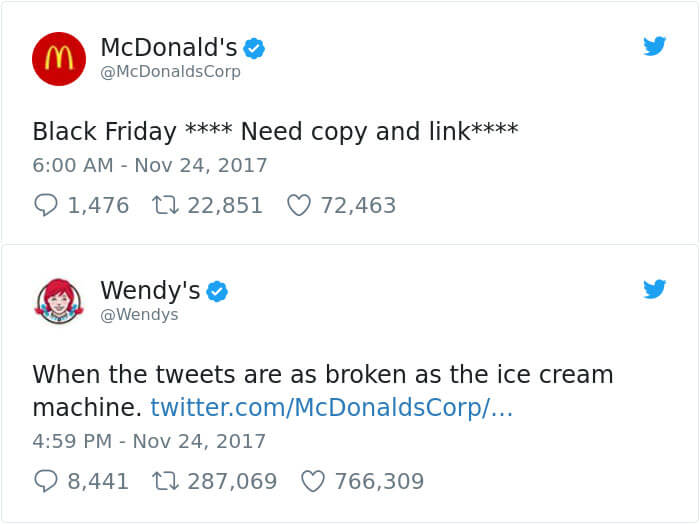
Elon Musk is another great example. Elon is the CEO of the fastest-growing automobile company in the world. But ask most people who the CEO of GM or KIA is and you’ll probably get blank stares. Elon’s strong social presence, combined with his affable personality and memeability directly impacts the sales of Teslas. For better or for worse.
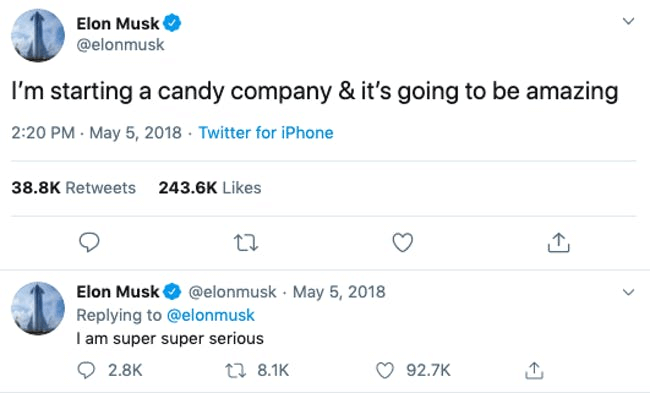
What we can take away from these two examples is the importance of humanity, personality, communication and ditching the corporate jargon too many brands are guilty of adopting.
12. Provide value. Lots of it.
As we previously mentioned, your followers don’t want promotions and advertisements crammed down their throats. In fact, 43% of consumers claim that the primary reason why they unfollow brands on social media is due to the amount of pushy ads. Instead, you should focus on providing as much value as humanly possible by entertaining and educating your followers.
Educate – if you want to be viewed as a leader in your industry, you have to prove that you know your stuff. For example, an SEO agency can utilize their expertise to share helpful tips about marketing and business management.
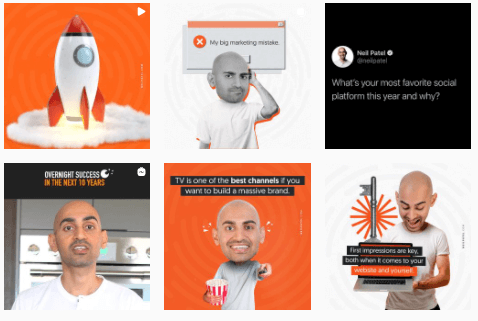
The more you nurture and educate your audience the more you cement your company as a thought leader, leading to more demand for your products and/or services.
Entertain – This is the fun part. Think outside of the box, participate in trends, showcase how your product can be used in weird and interesting ways, use a dash of humor and take some time to create engaging, visual content.
13. Create FOMO (fear of missing out)
FOMO is the anxiety you feel when you think you’re losing out on an amazing opportunity (like that rad party you regret not going to). These days, it can be one of the means how to use social media to grow your business. Businesses and marketers can harness the power of FOMO by showcasing how their potential customers’ lives can be improved by implementing your product into their everyday lives.
Here are some techniques brands use to create powerful FOMO:
- Use social proof
- Display strong branding
- Set time-limited offers
- Use influencer marketing
14. Utilize social media as a customer service medium
The vast majority of consumers view speed as an important aspect of a good customer experience.
We’ve highlighted the importance of engaging and communicating with your audience before and that point stands true when it comes to dealing with complaints and inquiries about your brand. Not only is using your existing social media as a customer service channel more efficient than hiring a dedicated support team, consumers now prefer social media for customer service over traditional emailing or phone calls. Social media, in turn, will serve as a self-service option for many customers if they can’t find the relevant information they are looking for.
15. Appeal to your core audience
Vilfredo Pareto, an Italian economist, discovered the 80/20 principle in 1897 when he observed that 80 percent of England’s land was owned by 20 percent of the population’s most opulent members. This principle is now a staple in economics and marketing to visualize how important core audiences are in relation to overall sales. If you want to increase your customers’ lifetime value and create loyal customers who will advocate for your brand you have to show your core audience that you care. If you’re still struggling to resonate with your audience here are some things you should start doing:
- Ask questions. Besides uncovering useful data about your customers, asking questions shows your followers that you value their opinions.
- Focus on solving needs. As we mentioned earlier, providing value to your audience trumps beating them over the head with product ads and promotions.
- Improve your brand’s imaging and focus on appealing to your ideal customer. Asking yourself: What voice and tone attracts them? What content do they enjoy consuming? How can my content help make their lives easier?
16. Make your brand recognizable
Speaking of branding, with such stark competition and dwindling organic reach on social media, if you want to stand out from the competition and become memorable to your target audience you need to double down on solid branding.
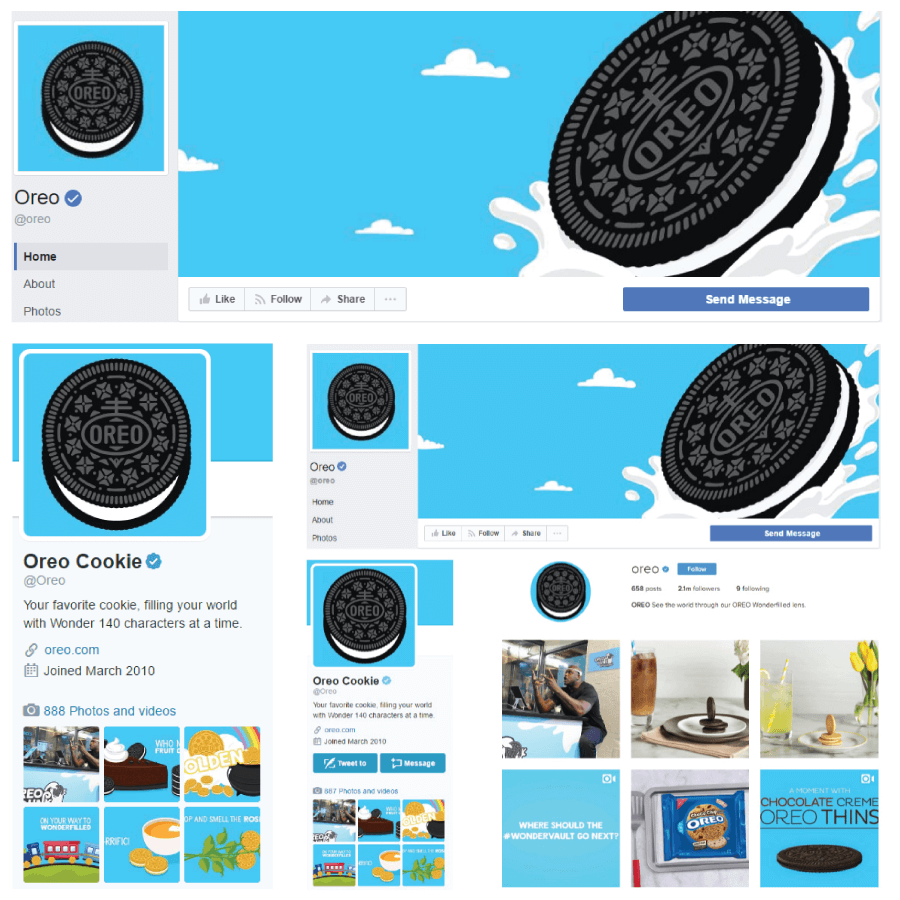
- Perfect your visual touchpoints like your logo, typography, icons, colors and animations.
- Give your brand some personality
- Create custom illustrations
- Feature influencers and industry experts
- Create groups and communities
17. Try out short-form video content
TikTok’s explosive rise in popularity spurred the transition from traditional longer videos to short-form, hyper-engaging content for some of the largest social media platforms.
Businesses have seen huge jumps in impressions and engagement by using YouTube shorts and Instagram Reels to share advice, showcase innovative products and create relatable content.
18. Show behind the scenes of your business
If you’re looking to spice up your social media feed look no further than behind the scenes content. By sharing BTS you can entertain your audience by giving them a peek behind the curtain of your business, showcase the development of your products/services and give your awesome team some well-deserved screen time.
19. Revamp your team’s communication
Marketing teams have a lot on their plates. When you’re collaborating with graphic designers, copywriters, managers and clients without air-tight communication, important project details can slip through the cracks. Details that can uproot weeks of work and cause nothing but frustration for everyone involved. Conveniently enough, we have a solution for that.
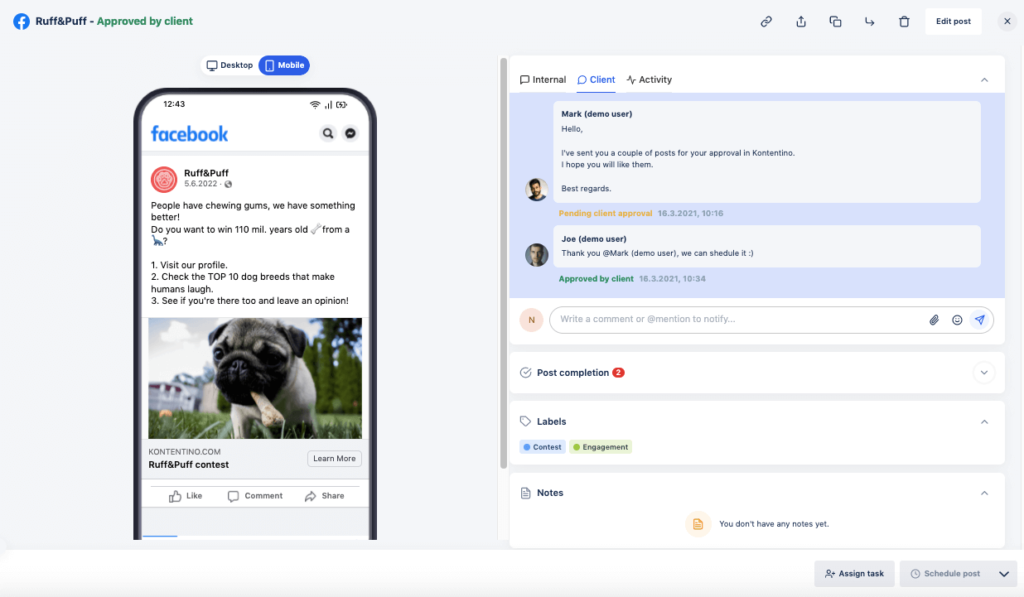
Kontentino’s robust software lets you seamlessly plan projects, collaborate with your team and manage your social media content. Here are some ways you can use Kontentino to revamp your team’s communication:
- Streamline your social with the built-in content calendar
- Plan and queue posts with the intuitive scheduler
- Set up post approval workflows
- Create customized reports
- Set approval processes for clients
20. Be authentic
Ninety-four percent of consumers are likely to stay loyal to brands that provide complete transparency. Authentic brands are human brands and humans care about other humans. By emulating human behavior and listening, conversing and caring about your audience you built trust. When consumers trust you, they are more likely to buy from you.
21. Invest in Memevertising
Memes are a part of our daily lives. Memes come in many shapes and sizes, from pictures with a text overlay, videos, gifs, hashtags, a single phrase like “Bye Felicia!”, you get the picture. Brands have been using memes for a while now. Most Old Spice ads can be considered memes. Keep Calm and Carry On became a hot-selling t-shirt, the entire Shrek Movie franchise can be considered a meme.
But how can you harness the power of memes on social media? First you need to know how NOT to meme. Here are some things to avoid when creating memes:
- Don’t sound like a brand. Sharing memes as a brand can be veeery tricky. Viewers can see that it’s a brand sharing a meme, so you’re already starting off on a slippery slope. If the meme itself then sounds like a 70 year old marketing executive created it (no offense to 70 year old marketing executives), you’re bound to get some grimaces.
- Don’t be outdated. Remember the “Damn Daniel” meme? That was 6 years ago. Memes can blow up in popularity then fizzle out into obscurity within days. To stay ahead of the curve, be active on TikTok, Reddit and Instagram to know which memes are trending now.
- Don’t try too hard to be funny. There’s nothing more cringe-inducing than a tryhard. Not only will people not like your meme, you can easily come across as offensive.
Many brands tend to shy away from using memes out of fear of messing up their brand voice. And while that’s a valid concern, you shouldn’t neglect the viral potential of memes. Airlines company Ryanair is a great example.
Ryanair’s first TikTok video was posted in May 2020 and their account already has an astonishing 1.6 million followers and over 13 million likes. They use clips of holiday adventures, amusing self-mockery, showcases of their planes, along with following video trends to reach users all over the world.
22. Build a Community
The term “NFT” became a sort of subculture phenomenon that dominated the front page of every social media platform and even news outlets late 2021 up until early 2022. And while NFT’s in particular have certainly dwindled in popularity, NFT projects growth strategies have left a mark on the marketing world; namely building communities.
According to Hubspot, 64% of marketers plan to invest in social media communities in 2022. With platforms like Twitter Spaces, YouTube Shorts, TikTok, Discord and Reddit, companies have the ability to educate, entertain and otherwise engage with their audience
Why is engagement important? In short, an engaged, active community can mitigate most potential roadblocks in the buyer journey. Reviews? Feedback? Advice? All the necessary assets that customers use to scope out your brand are right there in the community you created. This effectively turns your customers into micro-influencers and brand ambassadors.
To build an effective community, your audience should be a priority, not branding or promotions. You should also feature and encourage UGC among your audience.
You also need to invest heavily in managing your community and the content that will populate it. This is where a good content calendar can really come in handy.
Finally, make sure your communities are easily findable. Create a highlight story on Instagram featuring your community and create a page on your website dedicated to your audience’s awesome content.
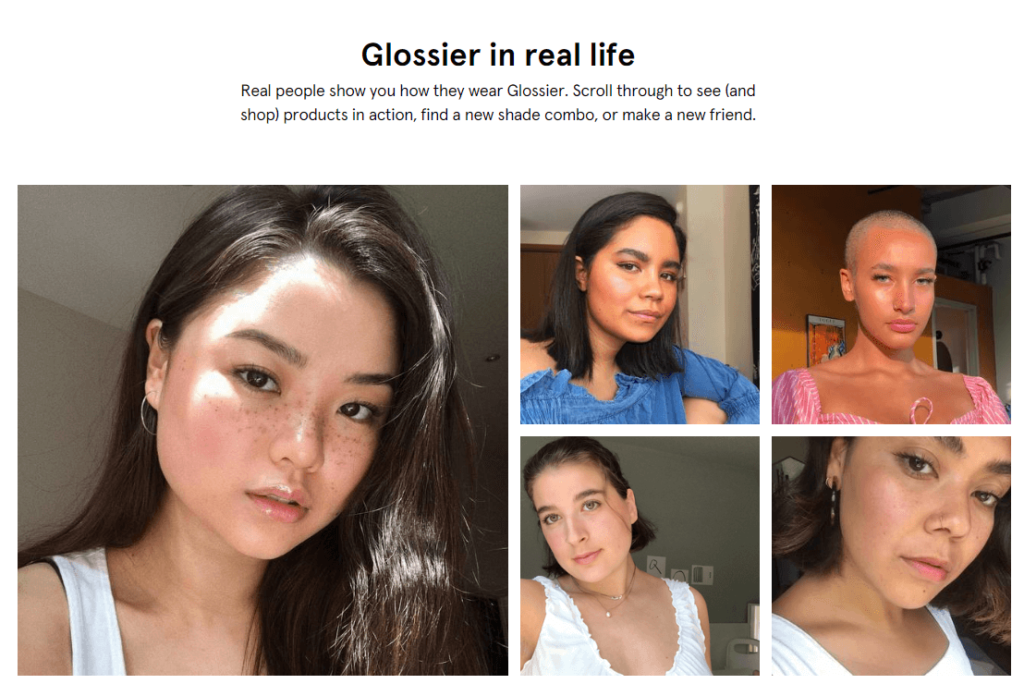
How to use social media to grow your business effectively
Using social media to build your businesses isn’t as easy as one might think. However, if you implement the strategies we listed in this article you’ll be well on your way to making more sales than you know what to do with.

